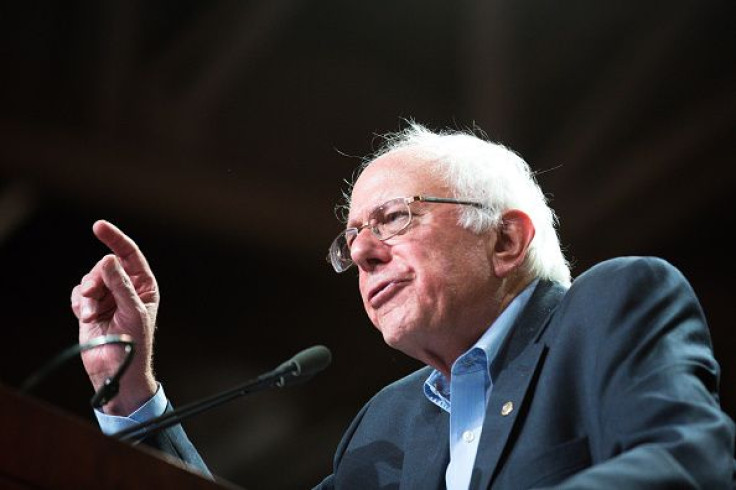Bernie Sanders And Allies In Congress To Propose $15 Federal Minimum Wage

The Fight For 15 is heading to Washington. On Wednesday, Sen. Bernie Sanders (I-Vt.) and Reps. Raul Grijalva (D-Ariz.) and Keith Ellison (D-Minn.), co-chairs of the 70-member Congressional Progressive Caucus, will unveil legislation that would set the federal minimum wage at $15 an hour--a figure that’s more than double the current rate of $7.25.
The proposal is unlikely to pass, but marks an ongoing leftward shift in the goalposts of minimum wage politics. By raising the pay floor to $15 by 2020, it outshines another Democratic proposal, backed by the White House, that sets a $12 rate by 2020. (That legislation, in turn, was a step up from another, previous Democratic proposal to raise the floor to $10.10 an hour.) In so doing, the bill ramps up pressure on liberal politicians looking to establish their low-wage worker bonafides. That development is especially relevant as Sanders and frontrunner Hillary Clinton, who recently declined to endorse the $15 figure, vye for the Democratic nomination for 2016.
The forthcoming legislation is, in part, a response to the so-called Fight for 15, a series of labor-backed protests calling for “$15 and a union,” says a Democratic staffer close to the Progressive Caucus. The high-visibility string of demonstrations and walk-outs, first organized by groups tied to the Service Employees International Union in late 2012, has driven the demand for $15 an hour into the political mainstream.
The staffer also pointed to growing momentum for a $15 minimum on the state level. On the same day that members of Congress will publicly announce their legislation, a New York wage panel is expected to formally endorse a $15 hourly minimum for fast food workers statewide. Gov. Andrew Cuomo impaneled the board earlier this year in response to ongoing protests. Meanwhile, activists in Oregon are moving closer to putting a $15 minimum wage initiative on the ballot in 2016.
According to the staffer, economists will also endorse the legislation on Wednesday. It is unlikely to gather much support, if any, from Republicans, but a majority of the Progressive Caucus is expected to support the bill.
Presidential politics play a role in the bill’s formation too. Sanders has already endorsed a $15 federal minimum, though not in legislative form. Last week, Clinton declined to back a national minimum of $15.
© Copyright IBTimes 2024. All rights reserved.












